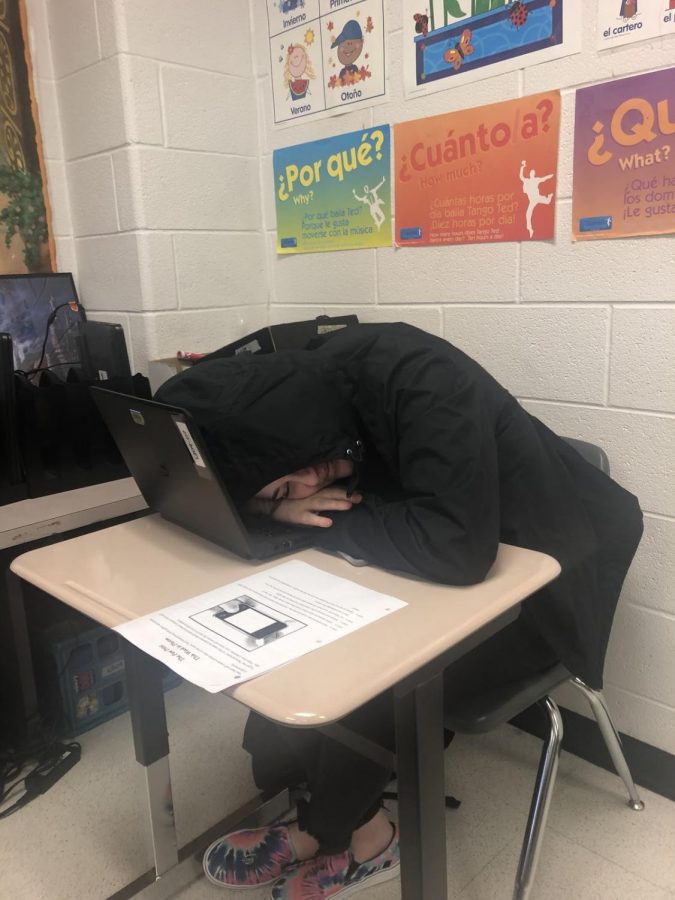Need For Sleep
Struggling with lack of sleep is a common problem for high school students
February 25, 2019
Sleep, who doesn’t love it! The outcomes of this delightful pleasure are mind-boggling dreams and a satisfying reimbursement of much needed energy. A lot of people use sleep to their advantage, other people have a different story, where their life consists of too much stress and/or active play, which leads to insomnia. Then there are some cases where somebody sleeps too much! Why is sleep needed in moderation?
Sleep is a time of active processing, where memories and information are stored into parts of the brain. According to the National Sleep Foundation, it is of critical importance that everybody gets the recommended amount of sleep each night. Their website states, “While adults need 7-9 hours of sleep per night, one-year-olds need roughly 11 to 14 hours, school age children between 9 and 11, and teenagers between 8 and 10.” With a good amount of sleep comes amazing effects such as elevated mood, an increase in energy, and a healthier body. Proper sleep is a blessing, but many people struggle with getting too much sleep, or sleeping none at all.
Insomnia is the condition in which people cannot get their proper rest. Either there is no sleep in their schedule (sleep deprivation), or their sleep is violent and rough. Sleep is the body’s natural healing process, and without it, the body can face serious damage. Researched by senior study author José M. Ordovás, PhD, “ Previous studies have shown that lack of sleep raises the risk of cardiovascular disease by increasing heart disease risk factors such as glucose levels, blood pressure, inflammation and obesity.”
Sleep deprivation and insomnia have been found to be caused by a number of things. Too much screen time, high levels of stress, and anxiety.
Hypersomnia is the opposite of insomnia. This is the condition used to label sleeping too much. This problem is usually directly connected to mental illness though, specifically depression and other depressive disorders. Many other things can contribute to this sleep disorder though, such as obesity, medication, or stress levels. “There is no single right amount of sleep that applies to everyone. Sleep needs are individual. They’re based on a number of factors,” says Sleep Doctor, Michael J Breus, PhD. “You may find you need 7 hours of sleep in your 20s, and 8 hours—or 6.5—in your 50s or 60s.”
Hypersomnia can cause a constant fatigue or overwhelming tiredness, and even leave people with severe headaches.
If you aren’t sleeping perfectly already, try to relax before going to bed. Insomnia and hypersomnia may seem nice to some people, but it is not a pleasant condition. Avoid eating and any stimulants (caffeine or your phone).



